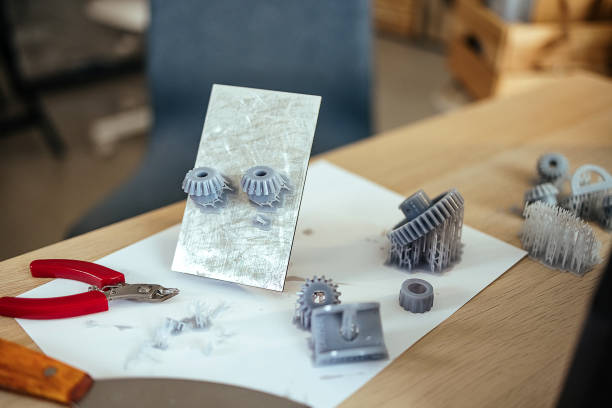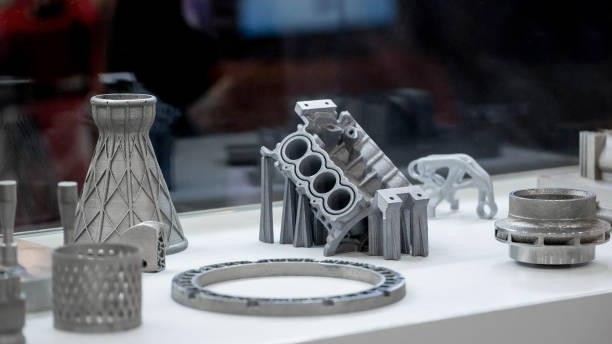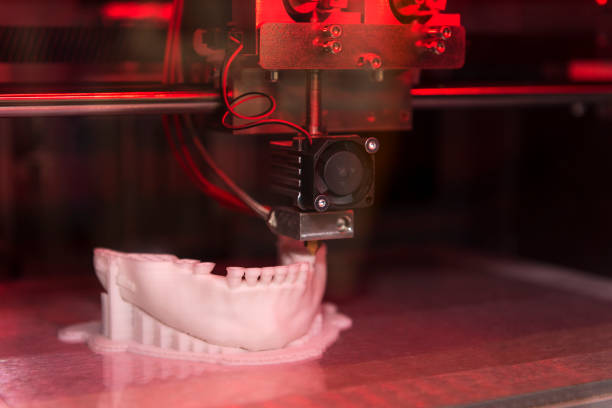- Oct 23, 2025
In the face of rising environmental concerns and tightening global regulations, industries are turning to sustainable manufacturing to minimize waste and carbon emissions. Among these industries, plastic injection molding is undergoing a remarkable transformation. From material selection to production efficiency, manufacturers are adopting innovative solutions that balance performance, cost, and sustainability.
At Oakon, we understand how crucial this shift is. Let’s explore how plastic injection molding continues to evolve to meet the demands of eco-conscious industries worldwide.

The Shift Toward Sustainable Manufacturing
Why Sustainability Matters in Plastic Injection Molding
Traditional molding processes rely heavily on petroleum-based plastics and energy-intensive machinery. However, global industries—ranging from automotive and electronics to medical and consumer goods—are now demanding eco-friendly production.
Sustainability is not just a trend; it’s a requirement driven by:
Regulatory compliance (RoHS, REACH, and ISO 14001)
Consumer awareness of product life cycles
Corporate responsibility goals
Cost efficiency through material reuse and energy savings
These forces are pushing manufacturers to rethink how plastic injection molding can minimize environmental impact while maintaining quality and precision.
Innovations in Sustainable Plastic Injection Molding
1. Use of Recycled and Bio-Based Materials
One of the biggest advances in sustainable molding is the use of recycled plastics and biodegradable resins. Materials such as PLA, PHA, and post-consumer recycled (PCR) plastics are increasingly replacing traditional polymers.
Benefits include:
Reduced carbon footprint
Lower material costs
Compatibility with high-performance mold designs
Oakon integrates recycled plastic molding technologies to ensure that every production run maximizes environmental and economic value.
2. Energy-Efficient Machinery and Process Optimization
Modern injection molding machines now come equipped with servo-driven motors, AI-based control systems, and energy recovery mechanisms. These upgrades significantly reduce electricity usage compared to hydraulic systems.
At Oakon, we apply energy monitoring software to track real-time power consumption, enabling manufacturers to optimize each cycle for maximum efficiency.
This not only cuts costs but also extends machine lifespan—creating a win-win for both the environment and production budgets.
3. Waste Reduction Through Precision Engineering
Sustainable manufacturing emphasizes lean production. In plastic injection molding, this means tighter tolerances, improved mold design, and smarter part geometry.
By integrating CAD/CAM software with precision CNC machining, Oakon reduces material waste during mold fabrication and component molding.
Key outcomes:
Less scrap material
Shorter setup times
Consistent product quality
Every mold we design at Oakon reflects our mission to produce more with less.
4. Closed-Loop Recycling Systems
Forward-thinking manufacturers now implement closed-loop recycling systems where excess plastic and defective parts are immediately reground and reused in production.
This approach ensures:
Zero-waste manufacturing
Reduced reliance on virgin materials
Improved traceability of recycled batches
By reusing internal waste, companies achieve both cost savings and a smaller environmental footprint—critical for large-scale OEM and industrial production.
5. Smart Monitoring and Data-Driven Sustainability
Digital transformation is a powerful ally in sustainable molding. IoT sensors and cloud-based monitoring systems allow continuous data tracking, helping manufacturers measure sustainability performance metrics like:
Energy consumption
CO₂ emissions
Material usage efficiency
At Oakon, our integrated digital platforms ensure transparency and traceability across all production stages, supporting partners who prioritize green manufacturing solutions.

Industry Applications: Meeting Diverse Sustainability Goals
Sustainable plastic injection molding is revolutionizing multiple sectors:
Automotive: Lightweight, recycled plastics enhance fuel efficiency.
Medical devices: Bio-based resins reduce chemical risks and improve safety.
Consumer electronics: Eco-design minimizes e-waste and supports recyclability.
Industrial OEMs: Energy-efficient processes lower long-term production costs.
Each industry benefits from tailored molding strategies that balance precision, durability, and sustainability.
Choosing Oakon: Your Partner in Green Manufacturing
At Oakon, we combine advanced plastic injection molding technology with a deep commitment to environmental responsibility. Our sustainable manufacturing practices include:
Use of recyclable and bio-based materials
Precision-engineered molds for minimal waste
Energy-efficient production lines
Compliance with international green standards
Whether you’re developing automotive parts, medical components, or consumer electronics, Oakon delivers eco-friendly, high-quality molding solutions that align with your sustainability goals.
The Future of Sustainable Plastic Injection Molding
The future lies in the fusion of innovation, automation, and ecology. Expect continuous improvements in:
Recyclable composite materials
AI-driven process control
Circular economy integration
Manufacturers who embrace these advancements will not only meet global sustainability goals but also gain a competitive advantage in efficiency and cost.
Sustainable manufacturing is no longer optional—it’s the foundation of modern industry, and Oakon is leading that transformation.
Conclusion
The evolution of plastic injection molding toward sustainable manufacturing is transforming how industries think, produce, and innovate. Through recycled materials, energy optimization, and data-driven efficiency, manufacturers can now achieve both environmental and economic benefits.
By choosing Oakon, you partner with a team dedicated to advancing green manufacturing solutions that deliver lasting value and global impact.
FAQs About Sustainable Plastic Injection Molding
1. What materials are used in sustainable plastic injection molding?
Biodegradable resins like PLA and recycled plastics such as PCR are the most common eco-friendly materials used today.
2. How does sustainable molding reduce costs?
Energy-efficient machines and closed-loop recycling lower power and material expenses, offering long-term operational savings.
3. Why choose Oakon for sustainable molding solutions?
Oakon provides innovative, environmentally conscious injection molding backed by precision engineering and international compliance standards.


